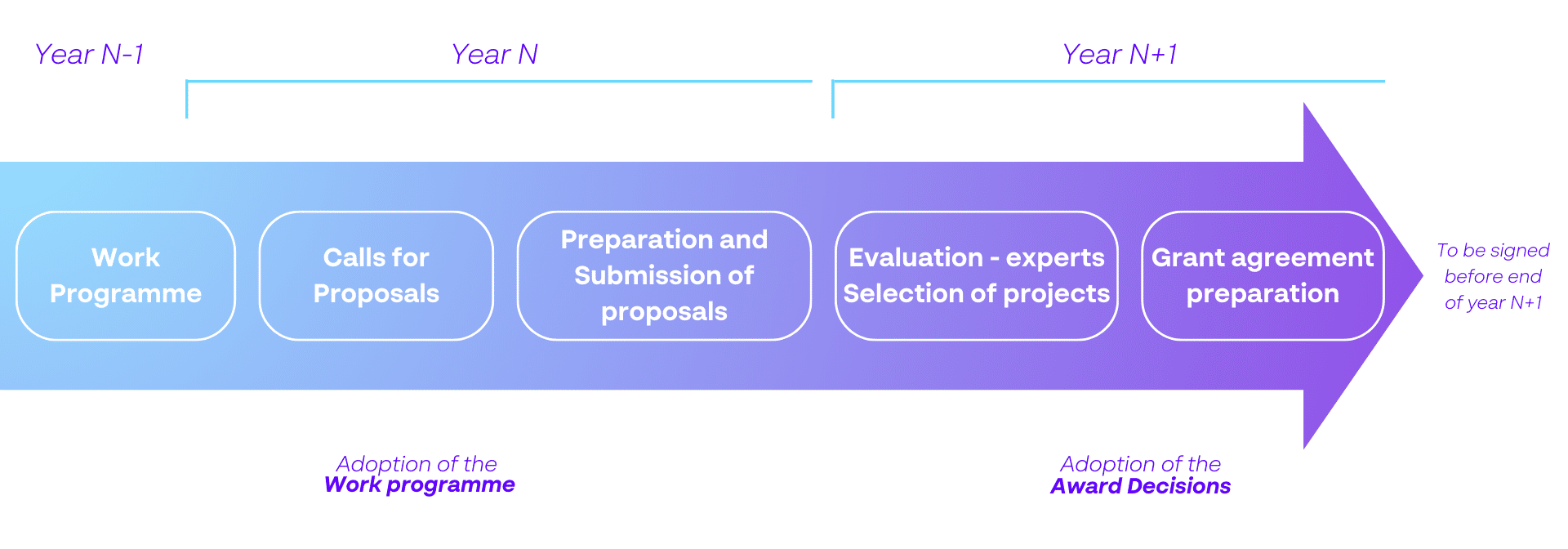

Originally, the European Union budget was not designed to finance the defence sector, which traditionally fell under the jurisdiction of Member States. To address this limitation and foster a more coordinated European approach, the EU has leveraged alternative mechanisms, such as support for industry, R&D, and innovation, alongside national financing schemes. The European Defence Fund (EDF) was established in 2021 for this purpose, following initial discussions that began in 2016.
The European Defence Fund (EDF) is a European Commission initiative aimed at enhancing research and development (R&D) in the defence sector across the European Union (EU). The EDF contributes to strengthening the EU’s autonomy in safeguarding and defending its citizens. It facilitates cooperation between Member States on the development and production of defence equipment and technologies. With a budget of €7.3 billion for the 2021–2027 period, the EDF is the EU’s first dedicated defence fund. Its primary objective is to foster collaboration between businesses—including SMEs—and research entities throughout the Union.
The EDF pursues several strategic objectives:
The EDF primarily funds transnational and collaborative projects involving at least three entities from three different EU or EFTA Member States. This requirement aims to promote European cooperation and strengthen interoperability in defence technologies. SMEs benefit from higher funding rates when participating in collaborative projects.
Eligible activities include: advancing knowledge, improving defence products and technologies, conducting studies, design, testing, qualification, or certification of defence products, as well as developing technologies that enhance the performance of defence products and systems.
The EDF funds projects across all technology readiness levels (TRLs), from basic research to procurement, divided into two main action types:

Calls for proposals are launched annually following the adoption of the corresponding annual work programme.
The first call under the 2021–2027 EDF had a budget of €1.2 billion. Out of more than 140 submitted projects, 61 were selected and awarded a total of €845 million. This funding supported the development of high-end capabilities such as next-generation fighter aircraft, tanks, naval vessels, and missile defence systems. An additional €322 million was allocated to address emerging threats and challenges through critical technologies including artificial intelligence, semiconductors, military cloud, medical countermeasures, space, and cyberspace.
The 2025 EDF work programme aligns with the EU’s current priorities.The 2025 Work Programme addresses 33 call topics in total, structured along 7 thematic calls for proposals, 2 non-thematic calls for proposals and 2 actions in support of the Alliance for Defence Medical Countermeasures. The calls will open in mid-February 2025, with a submission deadline set for 16 October 2025.
Navigating the complexity of EDF calls for proposals can be a significant challenge. The heavy administrative burden and strict application requirements demand highly specialised expertise. ABGi has longstanding experience in preparing successful funding applications, particularly at the European Commission level (Horizon 2020, Horizon Europe, EDF, EIC, Innovation Fund, LIFE, etc.).
The EDF represents a unique opportunity for European companies and researchers to collaborate and innovate in the defence sector. By partnering with our experts, you can maximise your chances of success.